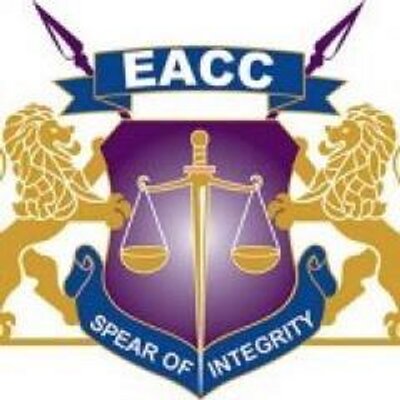EACC – Ethics and Anti Corruption Commission

The Ethics and Anti-Corruption Commission (EACC), refers to itself as “the lead government agency in the fight against corruption and the promotion of ethical standards, good governance, leadership and integrity.”
The EACC investigates and has powers like the police. But it has no power to prosecute cases, as prosecutorial powers lie with the Office of the Director of Public Prosecution (ODPP ), to whom the EACC recommends action.
In 2013/14 the EACC forwarded (only) 68 cases to the ODPP, of which 40 were recommended for prosecution and 12 for closure. The ODPP followed EACC’s recommendations in all these cases. (source: 2nd Progress Report by the ODPP, page 51 (Okt. 2015) (external link. As of March 2017 there was no newer file to be found on the ODPP site.)
Some Functions of the Ethics and Anti Corruption Commission :
- Investigate ”corruption, economic crimes and violation of codes of ethics” particularly those named in Sec 39 to 45 of the Anti Corruption and Economic Crimes Act (ACECA) and the Leadership and Integrity Act (LIA).
- Develop and oversee enforcement of the ”Codes of Conduct and Ethics”
- Promote best practices on integrity
- File recovery proceedings – see EACC Act including forfeiture of unexplained assets (ACECA Sec. 55-61)
- Recover public property acquired through corruption, Sec 13 of EACC Act
- Conduct mediation, conciliation and negotiation
- Promote standards and practices of integrity, ethics and anti-corruption.
Additional functions and powers are named in the Ethics and Anti-Corruption Commission Act, 2011 namely in Sec. 11 and Sec. 13.
About “Clearances” and the EACC’s Role during Elections
EACC officers stress that there is no such thing as a “clearance” of corruption charges. The EACC may only recommend to further prosecute a case. Therefore it is highly misleading if a person states that the EACC has “cleared” them. It is possible to say however, that the EACC has recommended a specific case for closure by the ODPP or has decided not to investigate.
Especially during election times, Sec. 64 of the ACECA, Anti-Corruption and Economic Crimes Act, can play a role. The law prohibits a citizen from being elected for ten years after a conviction. It should be stressed that an ongoing investigation is not enough to prevent anybody from running for an office in an election.
For journalists it can be an advantage to be a complainant and report about a suspected case of misconduct or corruption to the EACC. This is because the EACC is obliged to inform the complainant of the status of the case and inform in writing if the complaint is not investigated (Sec. 25 ACECA )
To get to know in detail and first-hand about the EACC’s procedures and powers, read the Anti Corruption and Economic Crimes Act. Use Ctrl-F and type “commission” to jump from section to section where the commission is mentioned.
The EACC Act deals with the commission’s internal procedures and its nomination as well as the functions of the officials working for the commission.